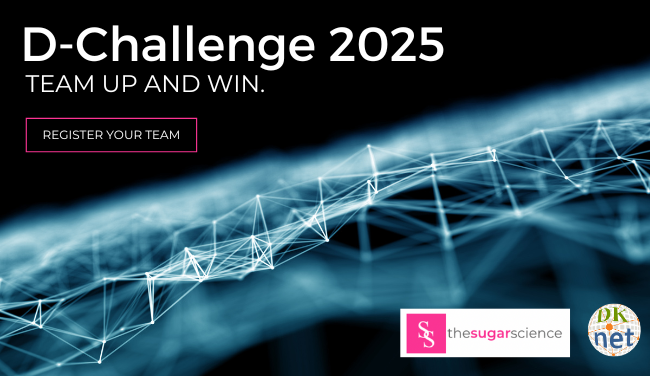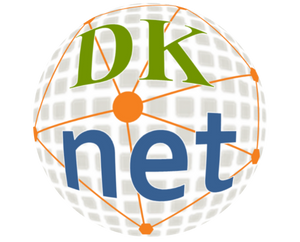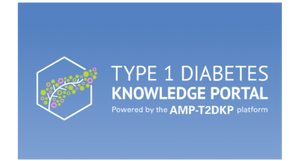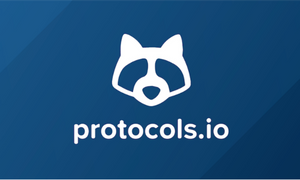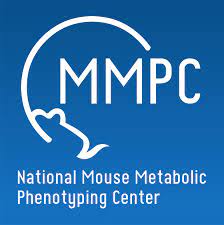What is the DChallenge 2025?
Inviting novice and experienced data scientists to apply their skills and passion to dive into pre-existing data and build new models, and posit new hypotheses pertaining to Type 1 Diabetes.
SnapShot
Snap Shot
D-Challenge 2025: What
The D-challenge is an in silico based competition where scientists participate by mining a consensome data set to create a novel hypothesis pertaining to T1D.
- Using the data driven resources and tools, registered D-Challenge participants identify targets that coincide with their interests.
- Using other partnered Resources (see below) D-Challenge participants go deeper into the understanding of how these data may contribute to T1D.
- Using known and newly accessed data resources, challenge participants create a novel hypothesis and Pitch their hypothesis to the JDRF-T1D Fund in a “Pitch Polish” and finally to our community of judges
Some highlights from Joaquin Reyna, 2021 D-Challenge winner, from the La Jolla Institute interview:
- “The beauty of this contest is it is about developing a hypothesis, and it is very open”, you can change directions at any point if your idea is just not making headway
- “My advice is to be fast, focus on your strengths, and pick up on ideas during the weekly meetings. The Dknet can facilitate finding a lot of data sets”
Check out his interview.
D-Challenge 2025: Who
Participation in the Challenge is open to novice and experienced data-scientists. We are asking you to share this information broadly within your organization in order to assemble the most robust group of participants and competitors. Registration is FREE and is open till September 12th, 11:59 PST.
D-Challenge 2025: Awards
T1D is a multifactorial disease, opportunities abound for participants to be creative and bold in coming up with hypotheses to submit for prizes totalling $10,000.00.
First prize $5k, second prize $3k and third prize $2k.
D-Challenge 2025: How
dkNET provides a wealth of resources that will be of value to researchers, students, and educators alike. We have created a series of topical webinars and additional tutorials to advance the study and application of FAIR data and bioinformatics tools.
To further expand the offered data driven D-Challenge knowledge base, we have partnered with several well known consortia in both T1D and bioinformatics fields. These resources include: dkNET, T1D Knowledge Portal (T1DKP), Appyters, HIRN, Mouse Metabolic Phenotyping Center (MMPC), Protocols.io, nPOD, PANCREATLAS, PANC-DB, signaling pathways project, AIRR, CalR, and the JDRFT1DFund.
Overview
We are asking cross-functional teams to generate novel hypotheses using rich, curated data sets.
The D-Challenge is a focused scientific movement that begins with the end in mind. We are leveraging our connections with Type 1 Diabetes researchers and inviting ALL of them to compete to catalyze innovation and accelerate research towards a practical cure for Type 1 Diabetes. In doing so, we aim to add a solid appreciation of the biology that drives this relentless disease to the current literature and knowledge base.
Type 1 Diabetes is a multifactorial disease that is studied by many scientific disciplines. the(sugars)cience, is partnering with dkNET (the NIDDK Information Network) to bring the full power of on-line digital resources to the challenge of Type 1 Diabetes.
In addition to claiming a share of $10,000 in cash prizes, winners will have an opportunity to present their hypothesis and interact with an audience including:
- Academic and institutional luminaries in the fields of Bioinformatics and Type 1 Diabetes research
- Industry leaders in biotechnology
- Professionals and advisors involved in venture funding
dkNET is an information and search portal that helps researchers find research resources relevant to their research and keep up to date on new tools, services, and mandates to support robust and reproducible science. Through our resource catalog, Discovery Portal, and our newly redesigned Hypothesis Center, newsletter and webinar series, we connect researchers to resources in digestive, diabetes, and kidney diseases.
Details
The D–Challenge is a community research challenge designed to increase awareness and use of the rich ecosystem of on-line tools and data findable through dkNET to develop a compelling hypothesis about the biology, treatment, or sequelae of Type 1 Diabetes. It is open to participants of all skill levels, from students to skilled bioinformaticians and data scientists.
The goal in this challenge is to bring investigators across disciplines to apply their skills and passion to the problem of T1D: its biology, treatment and sequelae, through the use of a rich interconnected ecosystem of data tools and resources. The extensive resources and tools hosted through dkNET provide the opportunity to catalyze searches for novel pathways implicated in disease pathophysiology and / or identify new therapeutic targets. As a partner in the D–Challenge, dkNET provides access to these resources and tools in an easily available setting, fostering discovery by the broad community of investigators focused on T1D.
Entries will be judged on the creative use of public tools, data, and knowledge resources to develop a compelling hypothesis regarding the biology, treatment, or sequelae of T1D. Participants are expected to use multiple on-line tools and platforms and to develop a plan as to how the hypothesis could be tested. The challenge focuses on in-silico development and testing and will not involve a wet lab component. Participants will be organized into different tracts, depending on the amount of bioinformatics experience they have, to ensure that the competition is open to all who are interested in learning about the rich ecosystem of online tools.
This challenge is open globally.
General information
- Registration submissions open until September 12 2025 at 11: 59 pm Pacific Time
- September 10 2025 10 AM PST//1 PM EST: Kick off meeting
- September 26 2025 Submit LOI (non-binding)
- September 26-October 17 2025 10 AM PST//1 PM EST: Data Bootcamps
- November 10 2025 & November 24 2025 10 AM PST//1 PM EST: Office Hours
- November 14 2025: Models and Papers due
- Finalists will be announced November 21 2025
- December 5, 2025: Pitch Polish with JDRF T1D Fund
- December 12, 2025: Live Pitch
- December 15, 2025: Awards
Register here by 11:59 pm PDT Sept 12 2025
Participant Requirements
- Attend a kick-off meeting for the Challenge
- Attend regular check-ins over the course of the Challenge
- Utilize multiple online resources to develop a hypothesis relevant to the mechanisms, treatment or sequelae of T1D
- Manage data according to FAIR practices for sound science
- Share protocol through protocols.io
- Use online tools to provide preliminary in silico data to test hypothesis
- Present work in a written and oral form to a panel of judges
Prize Breakdown
1st: $5k
2nd: $3k
3rd: $2k
Important Dates
Registration Deadline
September 12, 2025
Register HERE by September 12th, 2025 11:59 PM PT
Read moreD Challenge Kick-Off
September 19, 2025
Kickoff Meeting Sept 19th at 10am PT/ 1pm ET
Read moreFirst Bootcamp
September 26, 2025
First Bootcamp: Friday, September 26th, 10 AM PST// 1 PM EST
Read moreSecond Bootcamp
October 3, 2025
Second Bootcamp: Friday, October 3rd, 10 AM PST// 1 PM EST
Read moreFirst Office Hours
October 10, 2025
First Office Hours: October 10th, 10 AM PST// 1 PM EST
Read moreFinal Bootcamp
October 17, 2025
Final Bootcamp: Friday, October 17th, 10 AM PST// 1 PM EST
Read moreSecond Office Hours
October 24, 2025
Second Office Hours: October 24th, 10 AM PST// 1 PM EST
Read moreDeadline to Submit Model and Papers
November 14, 2025
Models and Papers due: Friday November 14th, 2025 @ 11:59 PM PST
Read morePitch Polish with JDRF T1D Fund
December 5, 2025
D-CHALLENGE PITCH POLISH with the JDRF T1D FUND December 5th, 2025
Read moreFrequently Asked Questions
Where can I register?
How does the challenge work? How do I use dkNET?
dkNET and the(sugar)science will provide a set of resources and a roadmap that registered individuals or teams may use to design a working hypothesis to further research in a realm of Type 1 diabetes. This data driven environment allows investigators to formulate new hypotheses around this landscape.
Use data accessed by dkNET portal, or others, to think about pathways to target to create novel hypotheses.
Attend scheduled data bootcamps (Sept 26-Oct 17 2025) to learn more.
What is our incentive to register?
Teams sign up with the incentive to earn a training stipend to further their research, recognition from their peers and a chance to become deeply familiar with the rich array of on-line tools available to them for pursuing their research.
Can our team create several hypotheses?
Yes
When will judging be held?
Live judging is held December 12, 2025
I have a question not answered in the FAQ. Who can I contact?
Contact: monica@thesugarscience.org or neha@thesugarscience.org
What are the terms and conditions?
TERMS and Conditions of D-CHALLENGE participation:
By participating in the D-CHALLENGE, you agree to submit your team’s original work. the(sugar)science and dkNET reserve the right to share information about any winners and their work with the public. Teams may have up to 5 members. Your team will retain it’s intellectual property (“IP”) and you will decide within your team how to distribute this. Team science is a new and powerful concept and discussions by teams should occur at the start of the Challenge.
Participating in the D-CHALLENGE will result in you becoming a member on the(sugar)science and dkNET and receiving their monthly newsletters, from which you can unsubscribe at any time.
Recognizing the global nature of this competition, you expressly agree to assume any and all risks involved in or arising from your participation in this competition and release D-Challenge, dkNET and the(sugar)science as well as all its assigns, agents and competition sponsors from any liability from your participation, and agree not to sue them on account of or in connection with any claims, causes of actions, injuries, damages, costs or expenses arising from your participation in this competition.
the(sugar)science/dkNET may cancel this competition at any time if less than 10 teams register. the(sugar)science and dkNET reserve the right not to award the Prize and to suspend the competition any time if a team does not follow all written rules and regulations.
Judges from the scientific community and dkNET will determine winners of the cash prizes. These cash awards are stipulated to be used only and specifically to forward the original research discovered in the course of the D-CHALLENGE.
We reserve the right to change these Terms and Conditions by posting changes on this document. By participating in the D-CHALLENGE, you agree to be bound by any such revisions and should therefore periodically visit this page to determine the then-current Terms and Conditions to which you are bound.
Partners and Resources for 2025
dkNET
dkNET is the sponsor of the D-Challenge and provides the basis for the bioinformatics tools employed in the competition. dkNET.org is a portal created to provide information to connect the NIDDK community of researchers with scientific resources. The portal provides access to large pools of data and research resources relevant to the mission of The National Institute of Diabetes Digestive and Kidney Disease (NIDDK).
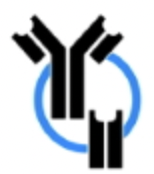
AIRR: The Adaptive Immune Receptor Repertoire
Part of the Community of the Antibody Society, a research-driven group that is organizing and coordinating stakeholders in the use of next-generation sequencing technologies to study antibody and B and T cell receptor repertoires.
- iReceptor is a science gateway tool that enables the discovery, analysis, and download of AIRR-seq data from multiple repositories: iReceptor Tool
- VDJServer is a resource for performing immune repertoire analysis and sharing data: VDJ Server
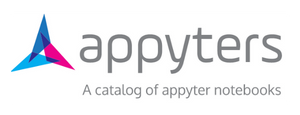
Appyters
The Gene Centric GEO Reverse Search Appyter, offers Challenge participants an opportunity to explore ways to modulate the expression of target genes based on signatures extracted from GEO studies. By querying a human or a mouse gene, this Appyter return interactive volcano plot visualization of signatures in which the given gene is maximally up- or down-regulated. A specific example, already developed for T2D, can be found in the Gene Expression T2D Signatures Appyter.
T1D Knowledge Portal is a new way to access T1D
T1D Knowledge Portal enables browsing, searching, and analysis of human genetic information linked to type 1 diabetes and related traits, while protecting the integrity and confidentiality of the underlying data.
CalR Version 1.3
protocols.io
protocols.io offers a private repository to Challenge participants with the ultimate goal of sharing work once a paper is published.
MMPC
The Mouse Metabolic Phenotyping Centers (MMPC) is a National Institutes of Diabetes and Digestive and Kidney Diseases-Sponsored resource that provides state-of-the-art technologies to investigators for a fee. Their services include characterization of mouse metabolism, blood composition (including hormones), energy balance, eating and exercise, organ function and morphology, physiology and histology.
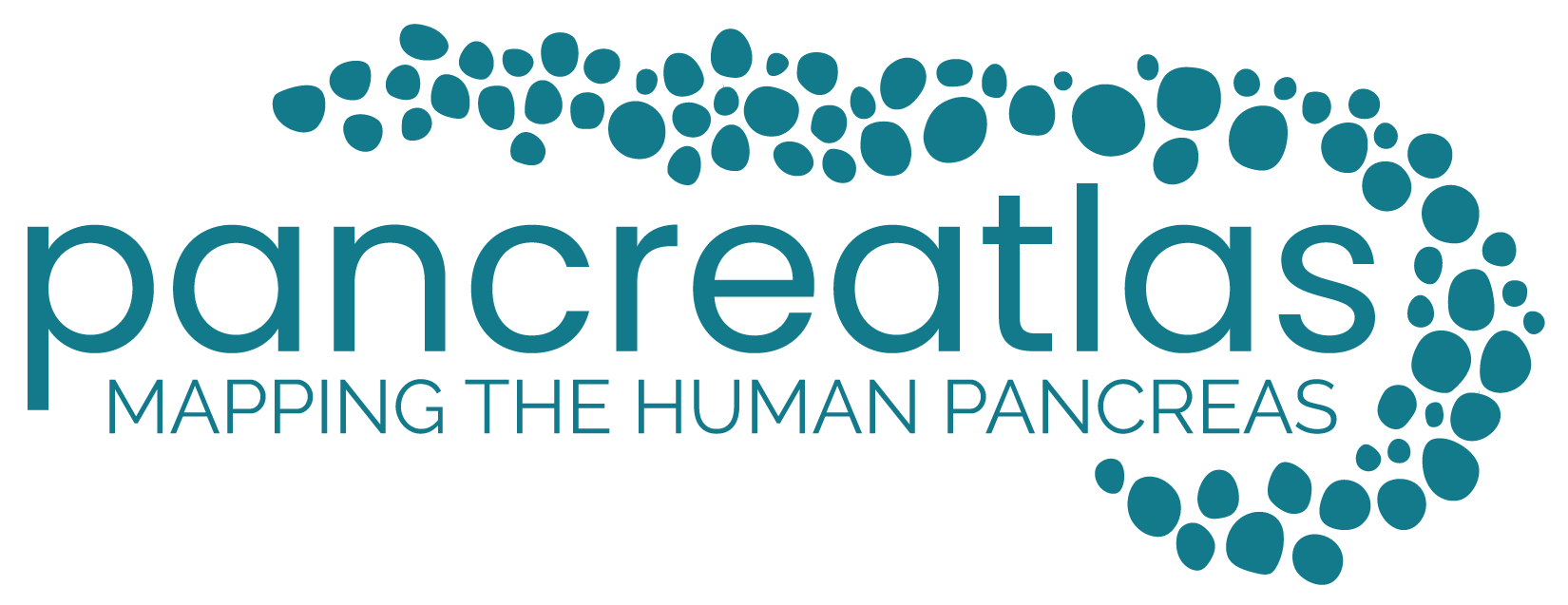 PANCREATLAS
PANCREATLAS
Pancreatlas is an online resource that houses reference imaging datasets from human pancreas samples, providing a platform for image exploration and description of pancreatic composition and architecture in health and disease.
- Human Pancreas Analysis Program (HPAP) histological (H&E) and imaging mass cytometry (IMC) images: HPAP collection
- Exeter Archival Diabetes Biobank (EADB) histological (H&E) and immunohistochemistry (IHC) images: EADB collection
- Manuscript on exocrine pancreas in type 1 diabetes, histology and fluorescent immunohistochemistry (FL IHC) images: T1D exocrine collection
TEDDY
The TEDDY study – The Environmental Determinants of Diabetes in the Young – is looking for the causes of type 1 diabetes mellitus (T1DM). T1DM used to be called childhood diabetes or insulin-dependent diabetes.
T1D Knowledge Portal is a new way to access T1D
T1D Knowledge Portal enables browsing, searching, and analysis of human genetic information linked to type 1 diabetes and related traits, while protecting the integrity and confidentiality of the underlying data.

dbGaP
The database of Genotypes and Phenotypes (dbGaP) was developed to archive and distribute the data and results from studies that have investigated the interaction of genotype and phenotype in Humans.
TERMS and Conditions of D-CHALLENGE participation:
By participating in the D-CHALLENGE, you agree to submit your team’s original work. the(sugar)science and dkNET reserve the right to share information about any winners and their work with the public. Teams may have up to 5 members. Your team will retain it’s intellectual property (“IP”) and you will decide within your team how to distribute this. Team science is a new and powerful concept and discussions by teams should occur at the start of the Challenge.
Participating in the D-CHALLENGE will result in you becoming a member on the(sugar)science and dkNET and receiving their monthly newsletters, from which you can unsubscribe at any time.
Recognizing the global nature of this competition, you expressly agree to assume any and all risks involved in or arising from your participation in this competition and release D-Challenge, dkNET and the(sugar)science as well as all its assigns, agents and competition sponsors from any liability from your participation, and agree not to sue them on account of or in connection with any claims, causes of actions, injuries, damages, costs or expenses arising from your participation in this competition.
the(sugar)science/dkNET may cancel this competition at any time if less than 10 teams register. the(sugar)science and dkNET reserve the right not to award the Prize and to suspend the competition any time if a team does not follow all written rules and regulations.
Judges from the scientific community and dkNET will determine winners of the cash prizes. These cash awards are stipulated to be used only and specifically to forward the original research discovered in the course of the D-CHALLENGE.
We reserve the right to change these Terms and Conditions by posting changes on this document. By participating in the D-CHALLENGE, you agree to be bound by any such revisions and should therefore periodically visit this page to determine the then-current Terms and Conditions to which you are bound.

